Miran 1g is a brand name of meropenem, a powerful antibiotic that can treat a wide range of bacterial infections. Meropenem belongs to the class of carbapenems, which are resistant to many enzymes that break down other antibiotics. Miran 1g is administered by injection and can be used for pneumonia, urinary tract infections, intra-abdominal infections, meningitis, septicemia, and more. In this article, we will discuss the uses, dosage, side effects, and precautions of Miran 1g.
What is Miran 1g?
Miran 1g is an injectable antibiotic containing the active ingredient meropenem. It is used for the treatment of various infections caused by bacteria, such as intra-abdominal infections, skin and skin structure infections, and meningitis in adults and children.
The medicine is administered intravenously over a specific period, and the dosage depends on the type and severity of the infection. Meropenem works by killing the bacteria or preventing their growth.
It is important to note that this medicine should only be used under the direct supervision of a doctor, as it may cause serious allergic reactions and requires careful monitoring during use.
The product is available in the form of a powder for solution for injection or infusion, with each vial containing meropenem trihydrate equivalent to 1g anhydrous meropenem. The medicine is produced by Julphar (Gulf Pharmaceutical Industries) and is available in the United Arab Emirates.
What are the ingredients in Miran 1g?
Miran 1g is an injectable antibiotic containing the active ingredient meropenem anhydrous (as trihydrate) .
It is manufactured by Julphar (Gulf Pharmaceutical Industries) and is available in the United Arab Emirates. Meropenem is a synthetic carbapenem beta-lactam antibiotic that is used to treat various infections caused by bacteria, such as intra-abdominal infections, skin and skin structure infections, and meningitis in adults and children.
The medicine is available in the form of a powder for solution for injection or infusion, with each vial containing meropenem trihydrate equivalent to 1g anhydrous meropenem.
How does Miran 1g work?
Miran 1g contains the active ingredient meropenem, which is a synthetic carbapenem beta-lactam antibiotic. The mechanism of action of meropenem involves its ability to interfere with the synthesis of bacterial cell walls, ultimately leading to cell death.
Here’s a simplified explanation of how meropenem works:
- Inhibition of Cell Wall Synthesis: Bacterial cells have a rigid cell wall that provides structural support and protection. Meropenem interferes with the synthesis of the bacterial cell wall by inhibiting enzymes involved in the formation of peptidoglycan, a crucial component of the cell wall.
- Weakening and Lysis of Bacterial Cells: The bacterial cell wall maintains the cell’s structural integrity. When meropenem disrupts the cell wall synthesis, it weakens the structural integrity of the bacterial cell. This can lead to cell lysis (breaking open) and death of the bacteria.
- Broad-Spectrum Activity: Meropenem is effective against a wide range of bacteria, including both Gram-positive and Gram-negative bacteria. This broad-spectrum activity makes it useful for treating various types of bacterial infections.
- Beta-Lactam Antibiotic: Meropenem belongs to the beta-lactam class of antibiotics. Beta-lactam antibiotics work by inhibiting the activity of enzymes called penicillin-binding proteins (PBPs) involved in cell wall synthesis.
It’s important to note that antibiotics like meropenem are prescribed by healthcare professionals, and the specific use, dosage, and duration of treatment depend on the type and severity of the bacterial infection. Patients should follow their healthcare provider’s instructions and complete the prescribed course of antibiotics to ensure effective treatment and prevent the development of antibiotic resistance. If you have specific questions about Miran 1g or its use, it’s recommended to consult with a healthcare professional or refer to official medical sources.
What are the benefits of using Miran 1g?
It’s important to note that individual responses to medication can vary, and the decision to use Miran 1g should be made by a qualified healthcare professional based on a thorough evaluation of the patient’s specific medical condition. Here are some potential benefits:
- Effective Treatment: Miran 1g contains meropenem, a broad-spectrum antibiotic effective against a wide range of bacteria. This makes it a valuable option for treating various bacterial infections, including intra-abdominal infections, skin and skin structure infections, and meningitis.
- Versatility: Meropenem has activity against both Gram-positive and Gram-negative bacteria, providing versatility in treating different types of infections.
- Potency: Meropenem is known for its potency, and its use may contribute to successful treatment outcomes when prescribed appropriately.
- Critical Infections: Meropenem is often used for serious or critical infections that require a powerful antibiotic. It is commonly administered in a hospital setting for severe infections.
- Individualized Treatment: Healthcare professionals typically tailor antibiotic treatment based on the specific bacteria causing the infection and the patient’s health condition. Miran 1g may be part of an individualized treatment plan.
- Intravenous Administration: The intravenous form of Miran 1g allows for efficient and rapid delivery of the antibiotic, which is important for treating severe infections.
It’s essential to note that antibiotics, including Miran 1g, should be used responsibly, and patients should adhere to the prescribed dosage and duration of treatment. Additionally, the decision to use this antibiotic should be based on a thorough evaluation by a healthcare professional.
What are the side effects of Miran 1g?
Miran 1g, an injectable antibiotic containing meropenem anhydrous, may be associated with certain side effects. It’s important to note that not everyone will experience these side effects, and the severity can vary. Here is an extended discussion on the potential side effects of Miran 1 g:
- Common Side Effects:
- Gastrointestinal Effects: Some individuals may experience mild gastrointestinal symptoms, such as upset stomach, nausea, or vomiting. These effects are generally transient and may subside with continued use.
- Headache: Headache is a relatively common side effect associated with the use of Miran 1 g. It’s usually mild and temporary.
- Injection Site Reactions: Minor reactions at the injection site, such as pain or swelling, may occur. These effects are typically temporary and localized.
- Less Common Side Effects:
- Constipation or Diarrhea: Changes in bowel habits, including constipation or diarrhea, may occur. Maintaining proper hydration and dietary habits can help manage these effects.
- Rash: Some individuals may develop a rash. This side effect is generally not severe, but it should be reported to a healthcare professional for evaluation.
- Rare but Serious Side Effects:
- Allergic Reactions: In rare cases, individuals may experience allergic reactions, which can manifest as fever, swelling, or difficulty breathing. Any signs of an allergic reaction should be addressed promptly, and emergency medical attention may be required.
- Neurological Effects: Seizures, confusion, or other neurological effects are rare but serious side effects. If any such symptoms occur, immediate medical attention is necessary.
It’s important to highlight that while Miran 1 g may be associated with certain side effects, the vast majority of individuals tolerate the medication well, and serious adverse reactions are infrequent. The benefits of using Miran 1 g, particularly in the treatment of bacterial infections, often outweigh the potential risks.
Read more about : What is Otozambon, and its uses?
How to take Miran 1g?
- Consultation: Begin by consulting your doctor or pharmacist to determine the appropriate dosage and administration instructions based on your specific medical condition and history.
- Prepare the Medication: Follow the instructions provided by your healthcare professional to prepare the Miran 1 g injection or infusion. This may involve reconstituting the powder with a suitable diluent.
- Administration: Administer the medication according to your healthcare provider’s instructions. Miran 1 g is typically administered either intravenously or intramuscularly, and the specific route will be determined by your healthcare professional.
- Monitoring: After administration, monitor your body for any potential side effects or adverse reactions. Report any unusual symptoms or concerns to your healthcare provider promptly.
Where to Buy Miran 1g in UAE :
To purchase Miran 1 g in the UAE, you can explore the following options:
- Local Pharmacies: Visit well-established local pharmacies in the UAE, where you can inquire about the availability of Miran 1 g and purchase it with a valid prescription.
- Online Platforms: Reputable online platforms such as Farmaco UAE, Dwaey, and Medicarcp may offer Miran 1 g for purchase. Ensure that the online source is trustworthy and complies with regulations for selling prescription medications.
- Authorized Retailers: Look for authorized retailers or distributors that adhere to healthcare regulations in the UAE. These can include both physical stores and online platforms.
- Medical Facilities: Hospitals and clinics may have pharmacies where Miran 1g can be obtained with a prescription.
FAQs about Miran 1g:
What infections does Miran 1g treat?
- Miran 1 g, containing the antibiotic meropenem, is used to treat various bacterial infections. This includes intra-abdominal infections, skin and skin structure infections, and meningitis in both adults and children.
How long does it take for Miran 1g to start working?
- The onset of action of Miran 1g can vary based on the type and severity of the infection being treated. It is important to complete the full course of treatment as prescribed by your healthcare professional, even if symptoms improve before the medication is finished.
Can I take Miran 1g with other medications?
- Inform your healthcare provider about all medications you are currently taking, including prescription and over-the-counter drugs, as well as any herbal supplements. They will assess potential interactions and determine the safety of combining Miran 1 g with other medications.
What are the precautions and warnings for Miran 1g?
- Follow your healthcare provider’s instructions carefully. Inform your doctor about any allergies, medical conditions, or medications you are taking. Be aware of potential side effects, and seek medical attention if you experience severe reactions such as difficulty breathing or allergic symptoms.
How to store Miran 1g properly?
- Store Miran 1 g as directed by the healthcare provider or as indicated on the product label. Typically, it should be stored in a cool, dry place, away from direct sunlight. Follow any specific storage instructions provided by the pharmacist or healthcare professional.


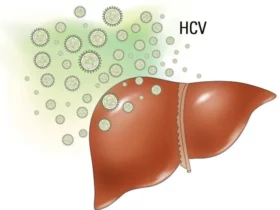

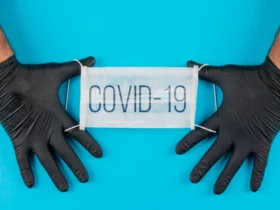

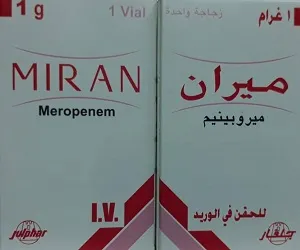
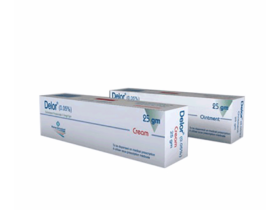
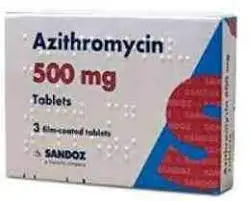

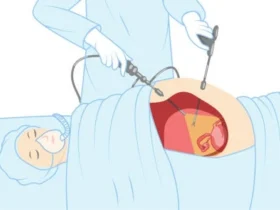



Leave a Reply